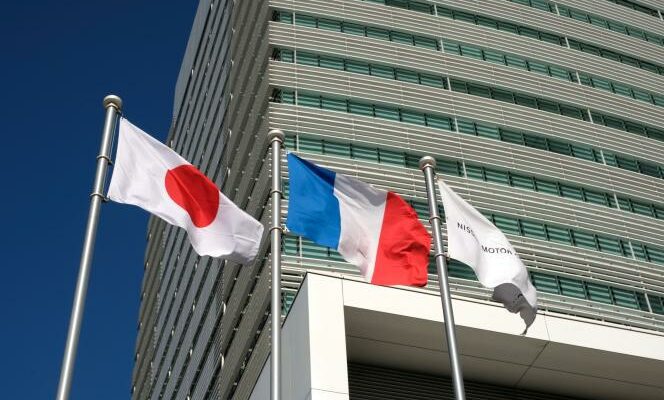The agreement announced on Monday January 30 is presented by Renault and Nissan as “the ambition to strengthen the links of the Alliance and to maximize the creation of value for all stakeholders”. Without unleashing passions, the agreement is however presented by the Japanese media, tending to forget that Nissan was saved by Renault in 1999, as the restoration of an injustice. The TBS channel thus speaks of it as the setting up of a “egalitarian relationship” ending “an ‘unequal treaty’ that has lasted for more than twenty years”.
This point of view is also reflected in the report of the public broadcaster NHK, which speaks of a “capital relationship favorable to Renault for more than twenty years” who “will be fundamentally overhauled” and the entrance “into a new era” of the relationship between the two companies. In fact, the capital alliance set up between Renault, Nissan and Mitsubishi could become a simple industrial alliance.
The conservative daily Sankei also welcomes the end of an unequal treaty, Nissan, although bigger than Renault, being deprived of the right to vote with its French partner. The newspaper also insists on the fears of the Japanese group to see common patents, in particular on autonomous driving and batteries, becoming accessible to other companies with which Renault wishes to associate, such as the American semiconductor manufacturer Qualcomm. or Google.
Persistent difficulties
Kenji Momota, a journalist specializing in the automobile, recalls on this subject that such an agreement was not easy because “the two groups are not strong in the same regions, and do not have the same priorities or positions, particularly in electricity”. Powerful in the United States or in China, Nissan is not necessarily interested in the electric on the European market, yet Renault’s priority, and does not taste the rapprochement between the French manufacturer and the Chinese Geely. “It must have been difficult to agree on shareholdings acceptable to both parties. »
The announcement of the agreement also comes as Nissan is experiencing ongoing difficulties. Also announced on January 30, sales in December 2022 fell 22.2% year-on-year. For the year ended at the end of March, the group expects sales to be down 7.5% compared to the previous year, to 3.7 million units. If it has revised upwards its annual profit, expected at 155 billion yen (1.1 billion euros), it is because of the depreciation of the yen. The Japanese group remains far from its past performance. At the end of March 2018, it had sold 5.7 million vehicles.
